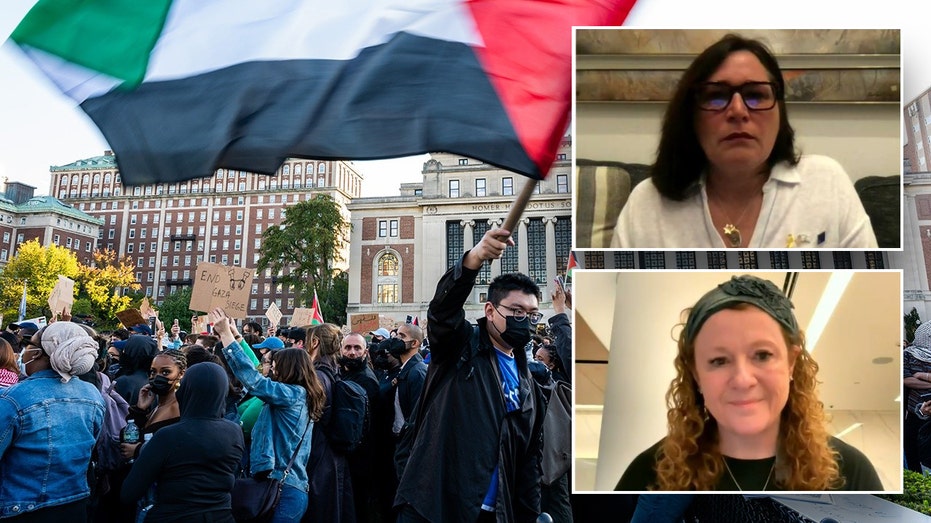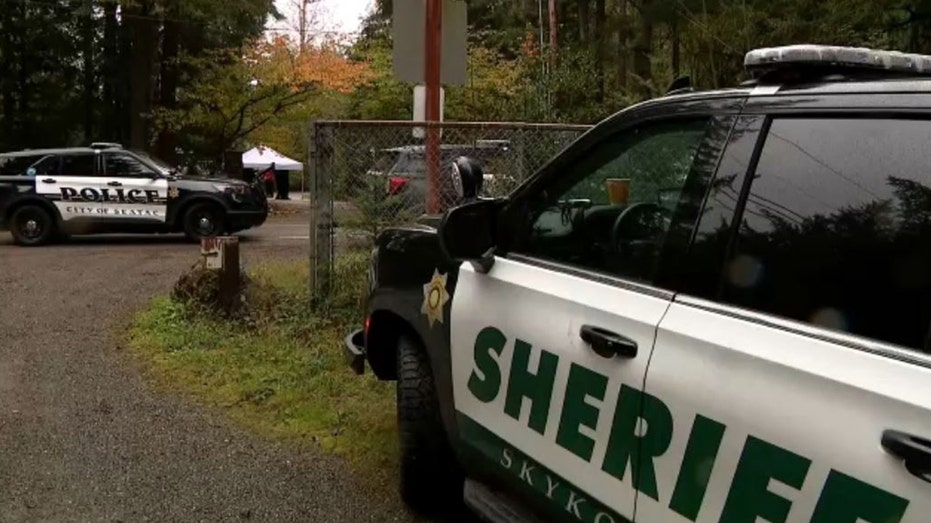Parents warn of 'nightmare' climate on Columbia University campus: Jewish students 'are being threatened'
Parents of Columbia University and Barnard students spoke out on the threat facing their children as anti-Israel protests continued.

Columbia University parents are sounding the alarm about the "nightmare" situation their children are facing as anti-Israel protests continue on the campus.
Amy Gallatin told "Fox & Friends First" that the unrest has led to many sleepless nights. Though her daughter attends Columbia’s partner school Barnard, she lives near the location of the ongoing protests.
"Fortunately, I live very close to campus, but you worry," Gallatin told co-host Todd Piro Wednesday. "Every parent worries about their kid going off to school or their child. This is my firstborn. And you just want them to have an experience. But when you're now having to reconcile what's happening in their classrooms on top of what's happening on the campus, it's a very disturbing thing. And it's making all of the parents extremely concerned."
Anti-Israel protests on campus have continued and grown in recent days, with faculty members attending Tuesday night’s demonstration and lasting hours beyond the midnight deadline imposed by the school.
Around 3 a.m. ET Wednesday morning, a Columbia University spokesperson issued the following statement: "We are making important progress with representatives of the student encampment on the West lawn. Student protesters have committed to dismantling and removing a significant number of tents. In light of this constructive dialog, the university will continue conversations for the next 48 hours."
In response to the heated demonstrations and the disruption to campus, the university announced that classes are shifting to virtual or hybrid learning formats through the end of the semester – a decision which then prompted questions about tuition refunds, as students are not in class full-time.
The cost to attend Columbia University as an undergraduate student in the 2023-2024 academic year is estimated to be nearly $90,000.
But Rabbi Marianne Novak, mother of a junior at Columbia, is not looking for reimbursement for tuition and said she’s not pulling her child out of the school.
"The Jewish students, they just want to go to school. They want to finish their schooling. They want to have a college experience," she told "Fox & Friends."
The protests, however, have been a "pain in the neck" for her son, who has not experienced any form of harassment or attacks firsthand.
"They have restricted the campus to only ID holders, which meant that he would have to budget another 40 minutes just to get into campus to go to class. So those things are irritating," Novak explained. "It just makes the whole atmosphere on campus just very difficult."
And though Jewish students have taken to counter-protesting, an act that Novak said puts "a lot of burden" on them, she took issue with the university’s response to the anti-Israel demonstrations.
"Initially, it seemed like they were going to be on top of these protesters to get them so it wouldn't be as disruptive as it is now. And they did set up a antisemitism committee, a task force. But it seems that whatever policies they had, if they were implemented, they weren't implemented well or any punishments," Novak said.
Gallatin said her daughter is a "proud Jew" and warned the climate on Columbia’s campus has become "threatening."
"It's not that the Jews are fearful so much as they are being threatened. All of them," she clarified.
"You have to be very careful of where you walk, where you go. And, even just being able to go and choose what dining hall that you want to go to, or being able to go to the gym or being able to go to the library for that matter. … The climate’s been pretty toxic since October 7."
Gallatin said she left the decision of whether to transfer to a different school up to her daughter, who she said loves attending Barnard and worked hard to get there.
Though Gallatin’s daughter is unlikely to look for alternative schooling, she understands why other parents feel the need to "get out."
"It's quite a nightmare," Gallatin said. "Nobody expected this. This is not a global pandemic. This is a global conflict. And it shouldn't be affecting my child's or any child's ability to just simply go to class and have a college experience."



